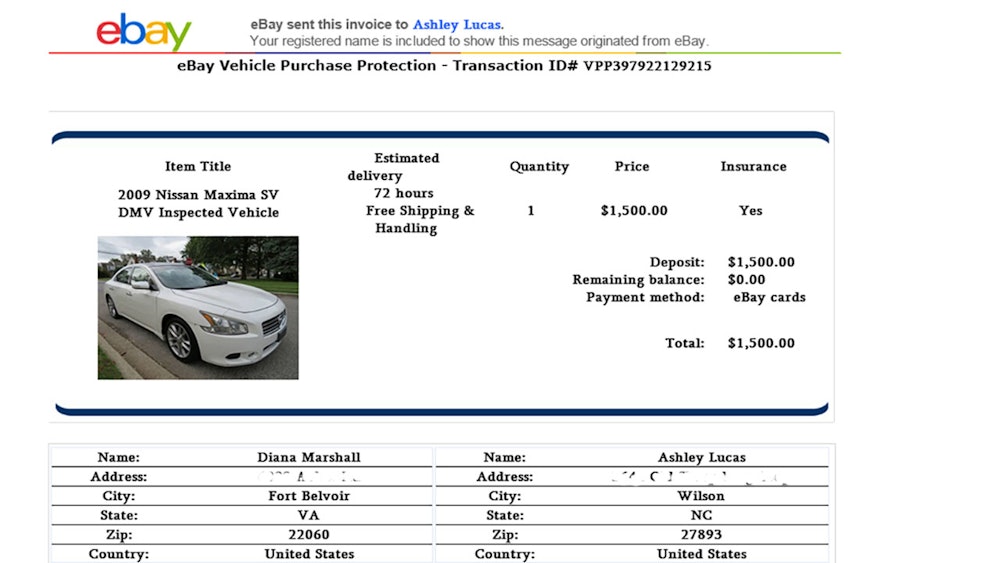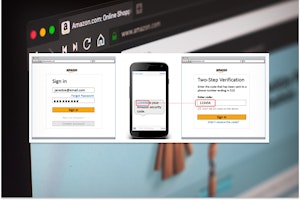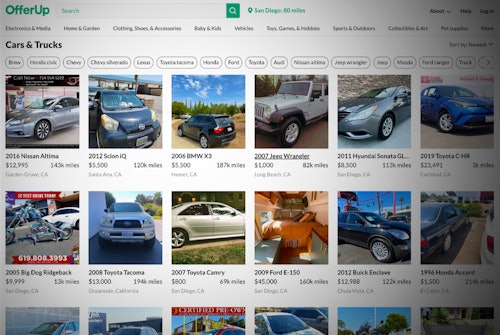Online Shopping In Depth
United States Online Shopping Scam Statistics 2020
- What Are Online Shopping Scams?
- How Do Online Shopping Scams Work?
- What Kinds of Payment Do Online Scammers Typically Accept?
- Red Flags of Online Shopping Scams
- Most Common Online Shopping Scams
- Which Brands Do Social Media Shopping Scammers Tend to Sell?
- How to Beat Online Shopping Scams
- Fallen Victim to Online Shopping Scams?
Over the course of one year, the Federal Trade Commission (FTC) received 4.7 million reports of online shopping scams, or around 12,876 scam reports a day. These scams cost consumers around $246 million, and though not everyone who reported the scams lost money, over a third (34%) did.
Online shopping scams have become a popular method of defrauding consumers. The good news is, once you understand what they are and how they work, you can avoid them by looking out for red flags.
What Are Online Shopping Scams?
Online shopping scams involve a thief setting up a fake website or ad to trick someone into paying for a supposed product. In this way, they pretend to be a legitimate online seller, gaining the confidence of buyers, but then never delivering anything in return for their money.
How Do Online Shopping Scams Work?
To execute an online shopping scam, the scammer first sets up a website that looks at least somewhat authentic. They can do this quickly using free or inexpensive templates you can buy online.
To make the site look as real as possible, they may steal logos and other branding material and choose a name for their site that looks or sounds like that of a real retailer.
The scammer will then find images of products they want to “sell.” Sometimes, the thief will opt for luxury items, such as jewelry, high-end clothing, watches, or other items that typically come with a premium price tag.
Scammers Are Getting Smarter
The success rate of online shopping scams has been on the rise. The percentage of people who actually lost money to online scammers rose over 47% between 2019 and 2020.
To entice their victims into making quick purchases, the scammer may offer the items for a significant discount in the hopes that a buyer won’t be able to resist such a good deal.
The scammer’s site may only be up for a short period of time and then disappear. In some cases, they may set up a fake social media site, scam some unsuspecting users, and then take it down soon after.
The ultimate goal of online scammers is to steal people’s money, and to ensure they don’t get caught in the process, they tend to only accept certain kinds of payments.
What Kinds of Payment Do Online Scammers Typically Accept?
For payment, the scammer may ask victims to pay using:
- Cash
- A money order
- Money transfer
- Peer-to-Peer (P2P) payment apps such as Venmo or Cash App
- Bitcoin
- Prepaid cash card
By only accepting these forms of payment, it is harder for the target to get their money back or for authorities to track down the scammer.
Red Flags of Online Shopping Scams
In many cases, it’s relatively easy to spot online shopping scams, particularly if you know what to look out for.
Too-Good-To-Be-True Pricing
If you see a product offered at a price that seems too good to be true, or if it features incredible benefits or specs, it may be a scam. Also, lookout for spelling and grammatical errors in the listing, this is one of the easiest red flags to spot. 
Lack of Shipping Information
In some cases, the site you're looking to buy goods from will have little to no information about how they will deliver the product. It'll also lack a return or refund policy on its websites which can point to a fake website or a scam.
Only Accepting Specific Payment Methods
Anytime an online seller requests immediate payment through a wire service, transfer of funds, or gift cards, you should be on the lookout.

Use of Stock Images
If the product looks like it could be a fake, try downloading the photos and then use Google’s reverse image search to see if the pictures are from another site. It’s a warning sign if a third-party seller doesn't include real photos of the actual item being sold.
Refusal to Meet in Person
Be weary of sellers who refuse or can't meet you in person to either show you the product or make the transaction physically. Typically, these are red flags that you may be getting scammed.

Long Shipping Times
Typically, counterfeit items come from international locations such as China which makes shipping times extremely long. This is a telltale sign of a fake product when dealing with U.S. retailers.
Most Common Online Shopping Scams
There are a number of ways scammers can trick online shoppers into giving them their money, so it’s always a good idea to be extra cautious when doing any financial transactions online. However, these are some of the most common ways scammers can trick you online.
Fake Coupons
When shopping online, it’s natural to want to look for discount or promo codes to decrease your total. In these scenarios, you’ll see a site offering a discount code that is hidden until you fill out a survey.
Discounted Gift Cards
This type of online shopping scam involves scammers using fake promotions offering free or discounted gift cards. Often, they’ll say they require your banking information in order to receive the gift card or more personal information that is necessary to secure a gift card.
Fake Products
Oftentimes, scammers will offer luxury items with too-good-to-be-true prices or at the same price as legitimate retailers. But they’ll only accept certain forms of payment and then, once the buyer receives the item, they’ll notice it’s a fake. Or they’ll never get the item at all.
Fake Social Media Sites
This type of online scam involves a scammer creating a fake social media account. They then set up a store on that social media platform, stealing pictures of products online. When the buyer expresses interest in a product, the seller demands payment through a wire transfer, prepaid card, or money order.
After stealing the money, the seller may pretend there are issues with shipping the item, blaming any delays on a shipping company or their fulfillment process. Once they’ve scammed enough people, they shut down the site.
Which Brands Do Social Media Shopping Scammers Tend to Sell?
The brands sold will vary, but they often include high-end or luxury items that people may have a hard time finding at a good price, such as computers, jewelry, sneakers, shoes, and clothing brands.
At times, the scammer will offer seasonal items that buyers may want to grab quickly before a season or holiday ends. These may include brands of Christmas, Halloween, Thanksgiving, or Valentine’s Day gifts.
How to Beat Online Shopping Scams
To beat scams online, there are a few precautions and measures you can take before and after purchasing any items online:
- Only purchases items from legitimate, reputable, and secure websites
- Verify the website’s return or refund policy
- Never click on suspicious links on pop-ups
- Only pay for items using secured payment services that being with "https://" in the URL
- Never share your sensitive financial information with anyone online
- Use strong passwords with a mix of numbers, letters and symbols and two-factor authentication (2FA)
- Avoid paying for goods with money orders, wire transfers, gift cards or any other up-front payment method
- Avoid deals that seem too-good-to-be-true
- Monitor your credit card activity regularly
- Request alerts for credit card purchases over a certain amount
- Keep records of each transaction in case something goes wrong, including:
- Company name and website
- The seller’s return policy
- All communications
- What you ordered and when
- Payment date
- The type of payment method you used
Fallen Victim to Online Shopping Scams?
First, if you have an issue when shopping online, try contacting the retailer or seller directly. They may have a legitimate reason for the problem.
If that doesn’t work and you think you’ve fallen victim a scam, you should immediately report it to the FTC. You should also file a report with your state’s attorney general, as well as the consumer protection agency.
These types of scams may also result in identity theft because scammers can try to steal your contact information, credit card info, or other personal data. Change your passwords immediately, especially if you use your login credentials for many sites.
Lastly, monitor your credit card and banking accounts in case of any fraudulent purchases in the coming months. The scammers may wait to make any major purchases until things have blown over.
Scams Relating to Online Shopping

Received an Amazon OTP Text? It Could Be a Scam
If you received an Amazon OTP text message out of the blue, it could be a sign that someone else is trying to log into your account.

How to Beat "Amazon Prime Renewal" Phone Scams
This scam starts with a recorded message about an early (or unwanted) Amazon Prime renewal. To 'cancel,' you will unknowingly be transferred to a scammer impersonating 'Amazon.'

Common Amazon Scam Texts and How to Protect Yourself
If you're one of the millions of people who buy products from Amazon, you've likely received a text message or two that seem a bit suspicious. We teach you how to identify a fake text and avoid being scammed.

OfferUp Car Scams: Red Flags to Look Out For
Buying a car on OfferUp may be a cheaper option, but it doesn't come without risks.

Common eBay Motors Scams & How to Avoid Them
Don't fall victim to eBay Motors scams. Know the red flags, such as not being able to see the car in person first, a pushy seller, or a strange payment method.

Amazon Brushing Scam: Receiving Packages You Didn't Order
Received an Amazon package that you didn't order? Check your account—scammers could be posting fake reviews on your behalf.

Amazon OTP Delivery Email: Protection Against Fraud
You can fight scammers who order big-ticket items from your Amazon account with a one-time password that stops them from receiving the item.

Shipping Scams Use Fake Emails to Steal Your Information
Scammers are sending convincing emails, posing as shipping companies and online shopping sites, in order to collect your personal information.

Common Scam on eBay: False Advertising and Fake Products
Reading product descriptions when shopping on eBay is crucial, as scammers often hide important information in them that could make you think twice about buying.

How Do You Beat Gift Card Scams? Never Pay Using Gift Cards
Beating this scam is simple—don't pay for anything using gift cards and don't give anyone you don't know or trust your gift card information.
Guides Relating to Online Shopping

How to View Your Amazon Archived Orders & Hide Search History
If you share your account with multiple users, archiving your past orders is a good way to keep others from seeing your orders and ruining a surprise or seeing private orders.

7 Ways to Spot a Fake Online Store
Online shopping is undeniably convenient, but lurking amidst the vast digital marketplace are fake online stores ready to pounce on unsuspecting shoppers.

How to Guide: Avoiding Geek Squad Auto-Renew Scam Emails
If you get an auto-renewal email from Geek Squad subscription, beware it could be a scam.

How to Claim Free Grubhub Delivery for a Year with Amazon Prime
Amazon's acquisition of 2% of Just Eat Takeaway is good news for Amazon Prime subscribers—free food delivery from Grubhub is just a few clicks away.

10 Best AeroPress Accessories for Ultimate Coffee Lovers
Coffee lovers, this one's for you. If you have an AeroPress, here are some of the best accessories you'll want to get your hands on so you can get more enjoyment out of your morning brew.
News Relating to Online Shopping

UK Teen Uses Google Ads to Lure Victims to His Scam Website
A teenager was found guilty of money laundering and fraud after scamming several people out of thousands of dollars.

Urgent CDC Warning: Eye Drops Linked to 3 Deaths, Loss of Vision
The CDC is warning eye drops users of a rare bacterial infection from 2 brands of eye drops. The infection is resistant to antibiotics and has resulted in the loss of vision, loss of eyeballs and the death of 3 patients.

Banks May Refund More Zelle Scam Victims in 2023
Zelle scams have reached a serious volume. New reports suggest that banks are looking at new refund protections for customers in 2023.

Optus Data Breach - One of the Worst Cyberattacks in Australia
Hackers have gained access to 9.8 million customer records from Optus in Australia, exposing personal information such as driver licence, medicare and passport details.

Roe vs. Wade Overturned: Abortion Rights in Your State
Find out what the overturning of Roe vs. Wade means for abortion rights in your state.








